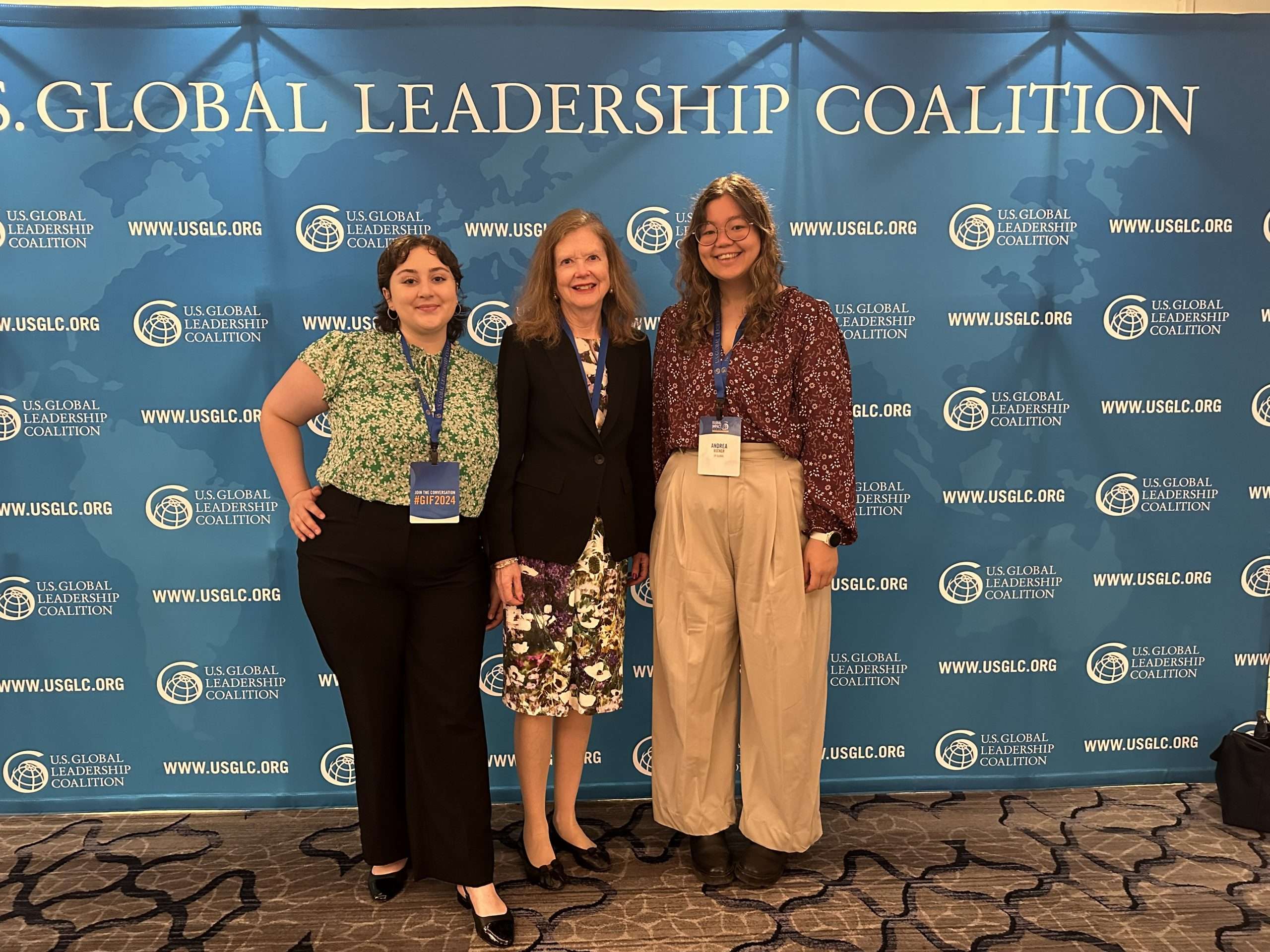
The U.S. Global Leadership Coalition Global Impact Forum 2024 provided a platform for robust discussions on the future of America’s foreign policy and diplomacy. One of this year’s conversations, titled “Security and Humanity: American Strategies for Global Crises,” brought together distinguished panelists who shared their insights on preventing crises, balancing humanitarian aid with long-term development, and the critical importance of bipartisanship in foreign aid.
The panel, moderated by Michelle Bekkering, Director of National Engagement at the U.S. Global Leadership Coalition, included Anne Witkowsky, Assistant Secretary at the Bureau of Conflict & Stabilization Operations, US Department of State; Lt. Gen. Gina Grosso, US Air Force (Ret.); Coy Isaacs, Director of Crisis Response at FHI 360; and Eddy Acevedo, Chief of Staff and Senior Advisor at The Wilson Center. Each brought unique perspectives on how the U.S. can strategically address global challenges.
Preventing crises and promoting stability
Bekkering opened the discussion by highlighting the importance of preventing crises and considering long-term impacts. Witkowsky emphasized the significance of the Global Fragility Act, a bipartisan legislation that paved the way for a 10-year US strategy to preventing conflict and promoting stability. The strategy, supported by nearly $500 million from Congress over four years, focuses on a whole-government approach that leverages diplomacy, development, and defense to address the roots of instability and conflict.
Witkowsky detailed the implementation in four priority countries and one region: Haiti, Papua New Guinea, Libya, Mozambique, and five countries in Coastal West Africa. She underscored the importance of adaptive management and data-driven strategies, highlighting the critical role of partnerships at all levels to create sustainable solutions — all key aspects of DT Global’s work.
Humanitarian aid and long-term development
Coy Isaacs from FHI 360 discussed the challenge of balancing immediate humanitarian aid with long-term development. He illustrated this with examples from FHI 360’s work in Ukraine and Ethiopia. In Ukraine, FHI 360 shifted from development programs to providing lifesaving medical care and mental health support during the invasion. In Ethiopia, the organization adapted its nutrition programs to support displaced communities during the Tigray conflict.
Isaacs shared a poignant anecdote about a displaced healthcare worker from Tigray, who, despite losing her parents and being displaced multiple times, was able to train other community workers to provide emergency care and nutrition support. This story exemplifies the resilience and adaptability required to provide continuity of care during crises and transitions.
Bipartisanship and political attitudes
Eddy Acevedo addressed the importance of bipartisanship in foreign aid, debunking the myth that isolationism is on the rise. He stressed that foreign aid, which constitutes a small percentage of the US budget, is crucial for maintaining global stability and countering adversaries. Acevedo highlighted successful bipartisan efforts, such as the recent Ukraine supplemental, and argued that while achieving bipartisan support may require more effort today, it is imperative.
Lessons from Ukraine and future engagement
Lt. Gen. Gina Grosso discussed the collaboration between the US Department of Veterans Affairs and Ukrainian healthcare providers. The VA has been providing expertise and support since the start of the war, highlighting the potential for long-term partnerships to support veteran care and rehabilitation.
Witkowsky added that lessons learned from Ukraine and other countries under the Global Fragility Act are being applied to new contexts. She shared her experience from Papua New Guinea, where local initiatives to uplift women and address violence are creating economic resiliencies and peaceful communities. Similarly, in Coastal West Africa, investments in prevention are crucial amid instability caused by violent extremist organizations and private militaries.
Connecting global impact to local understanding
Bekkering concluded the session by discussing the importance of communicating the impact of foreign aid to US constituents. Acevedo emphasized that explaining how foreign aid benefits the US economy and security is essential for garnering public support. He pointed out that many of the US’s top trading partners have received foreign aid, which has facilitated trade and lifted millions out of poverty.
In summary, the USGLC Global Impact Forum 2024 highlighted the interconnectedness of global stability and US interests. Through strategic prevention, balanced humanitarian and development efforts, and strong bipartisan support, the US can continue to play a pivotal role in addressing global crises and promoting a more stable and prosperous world.